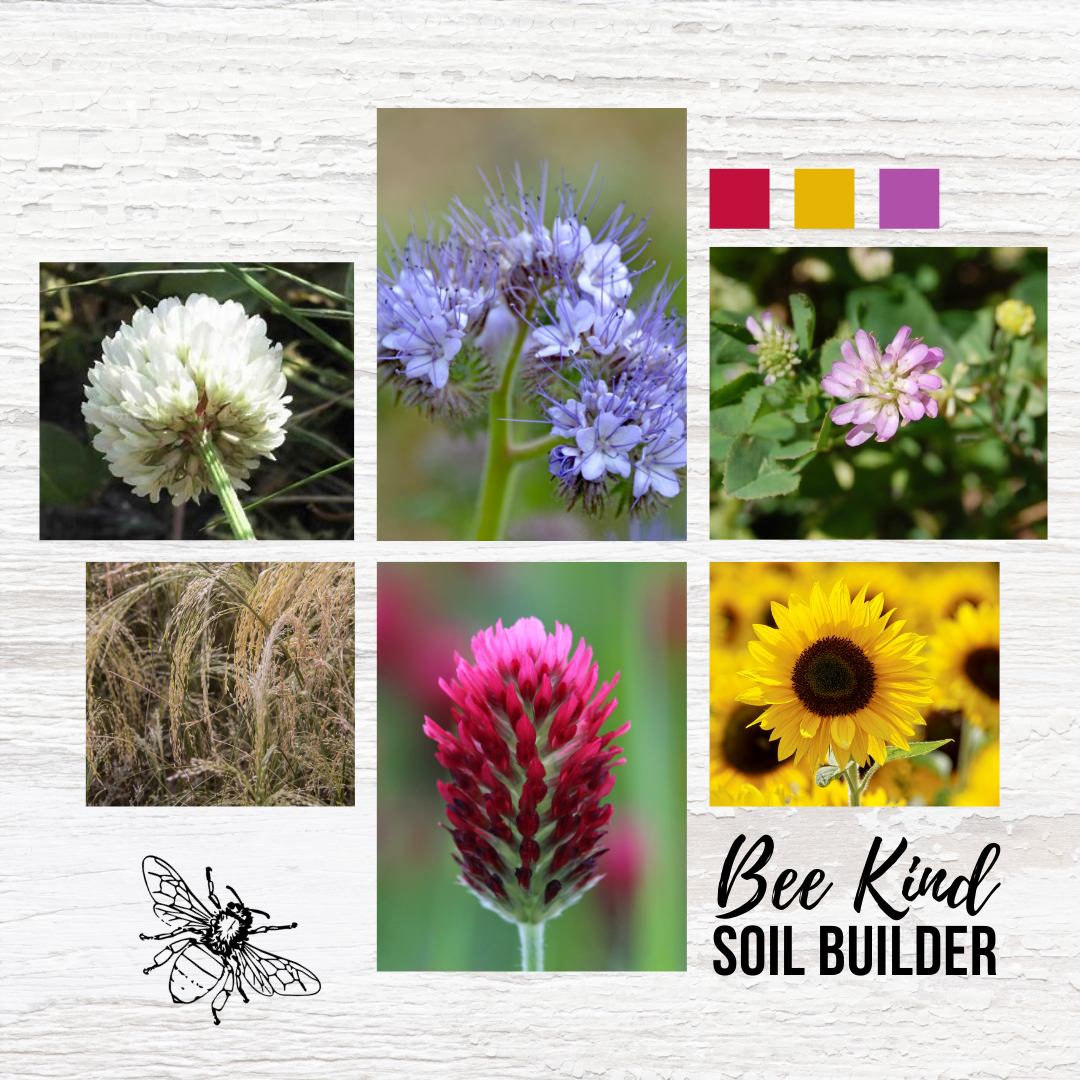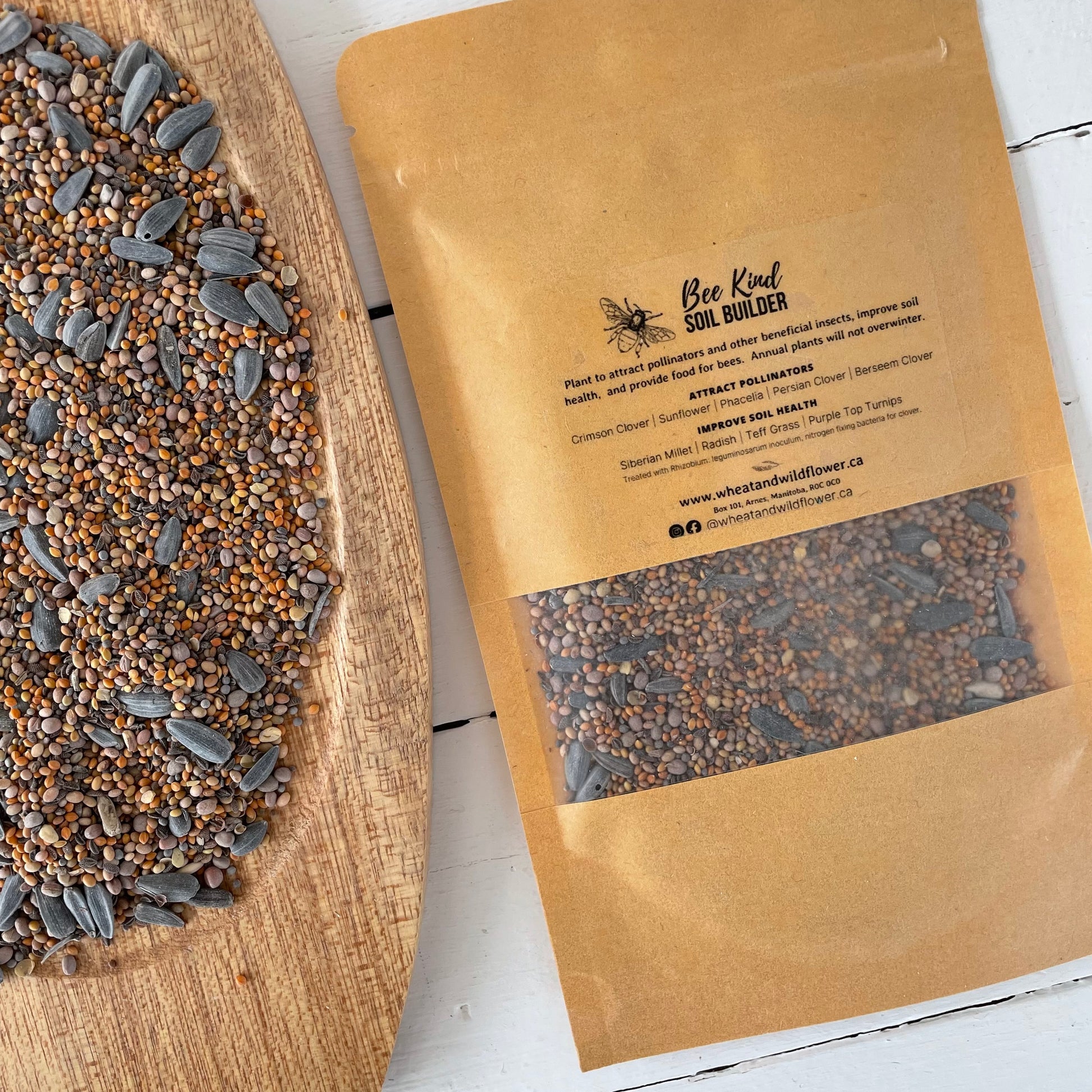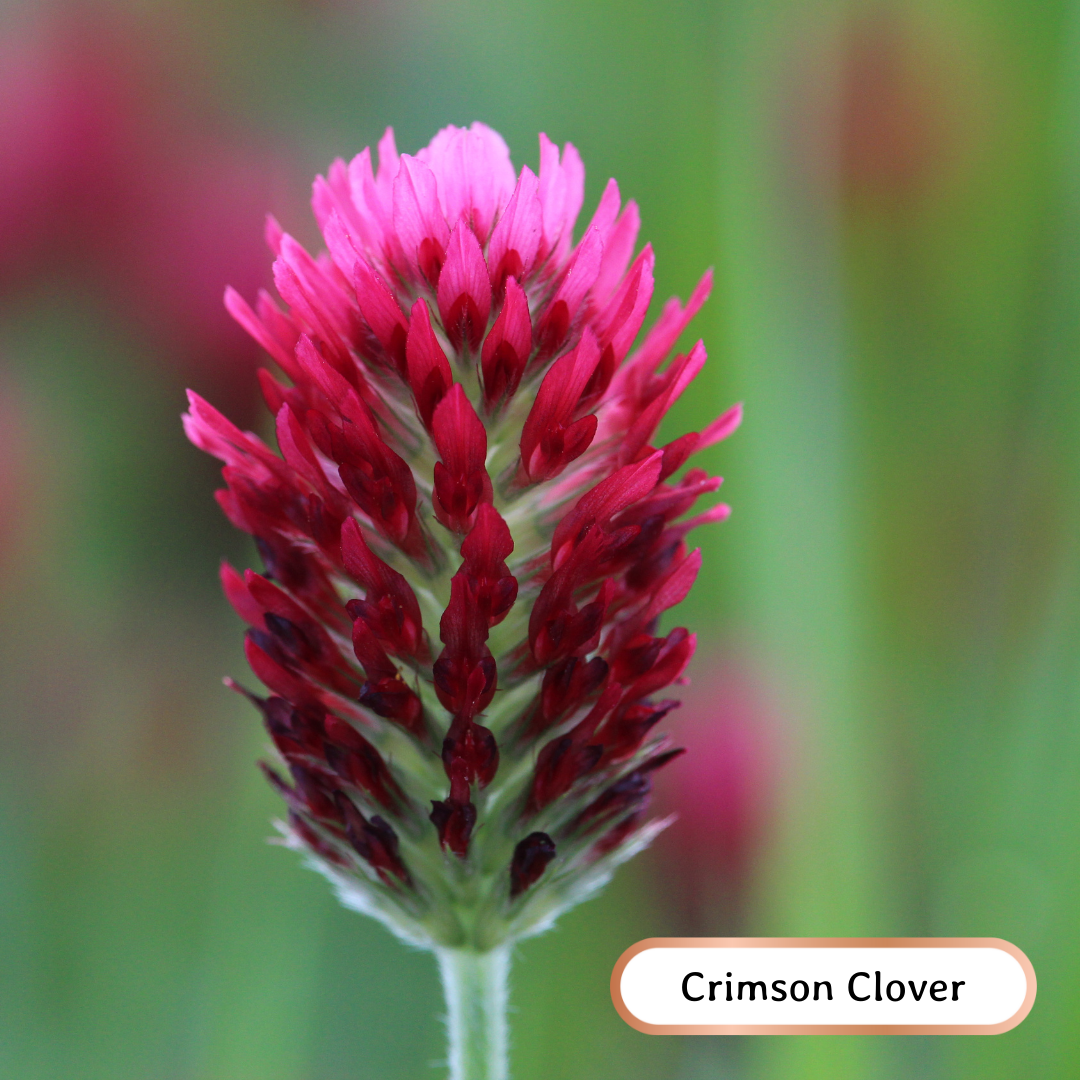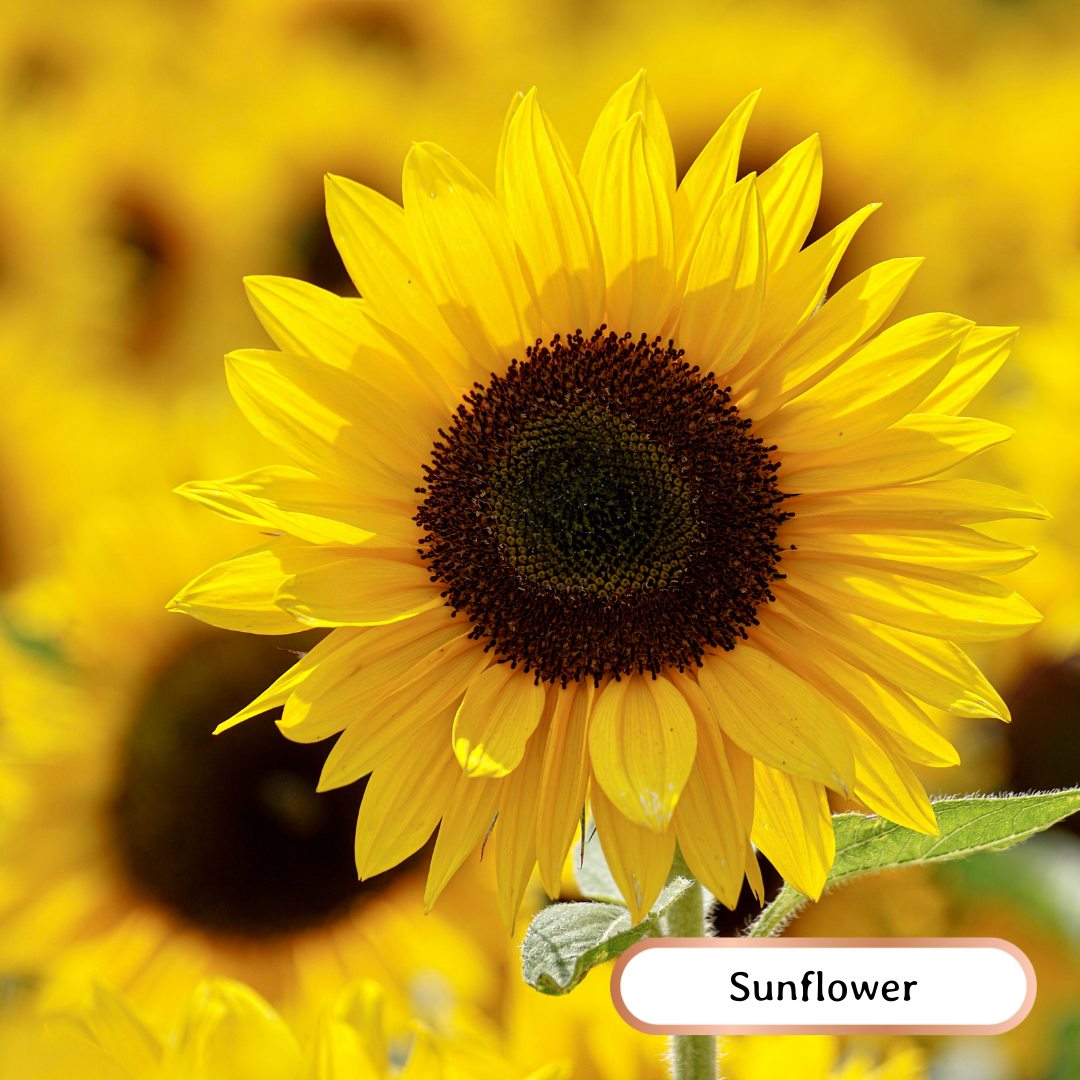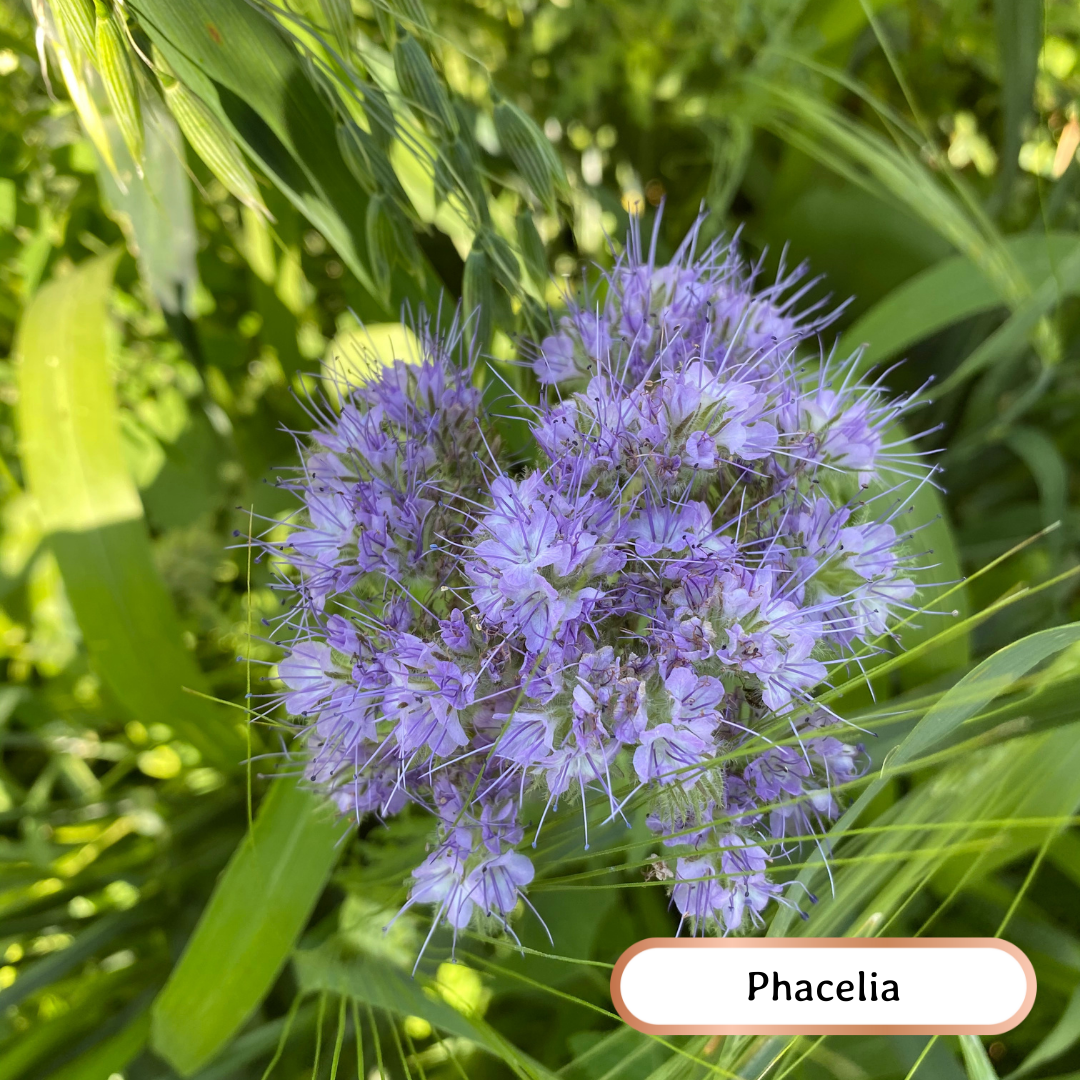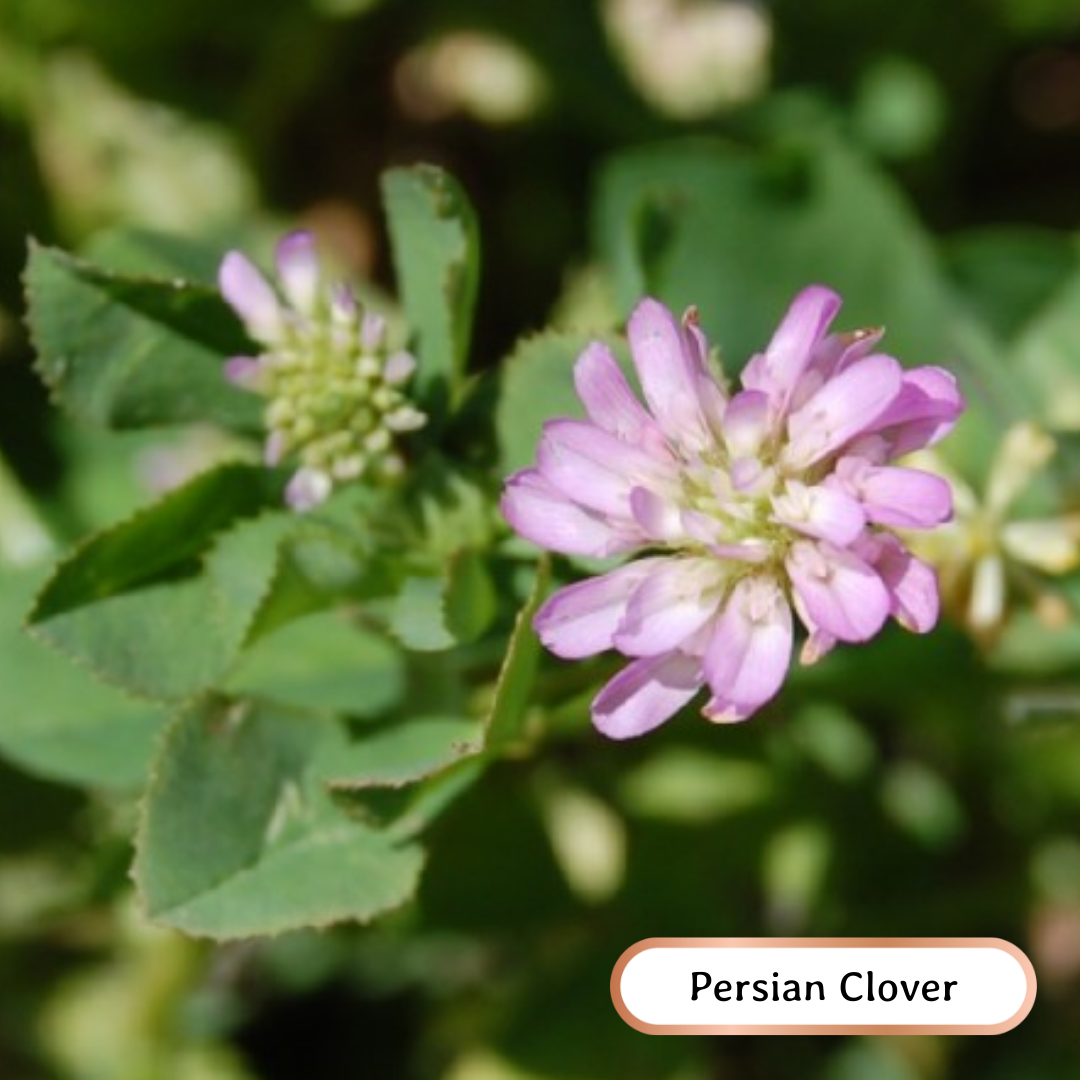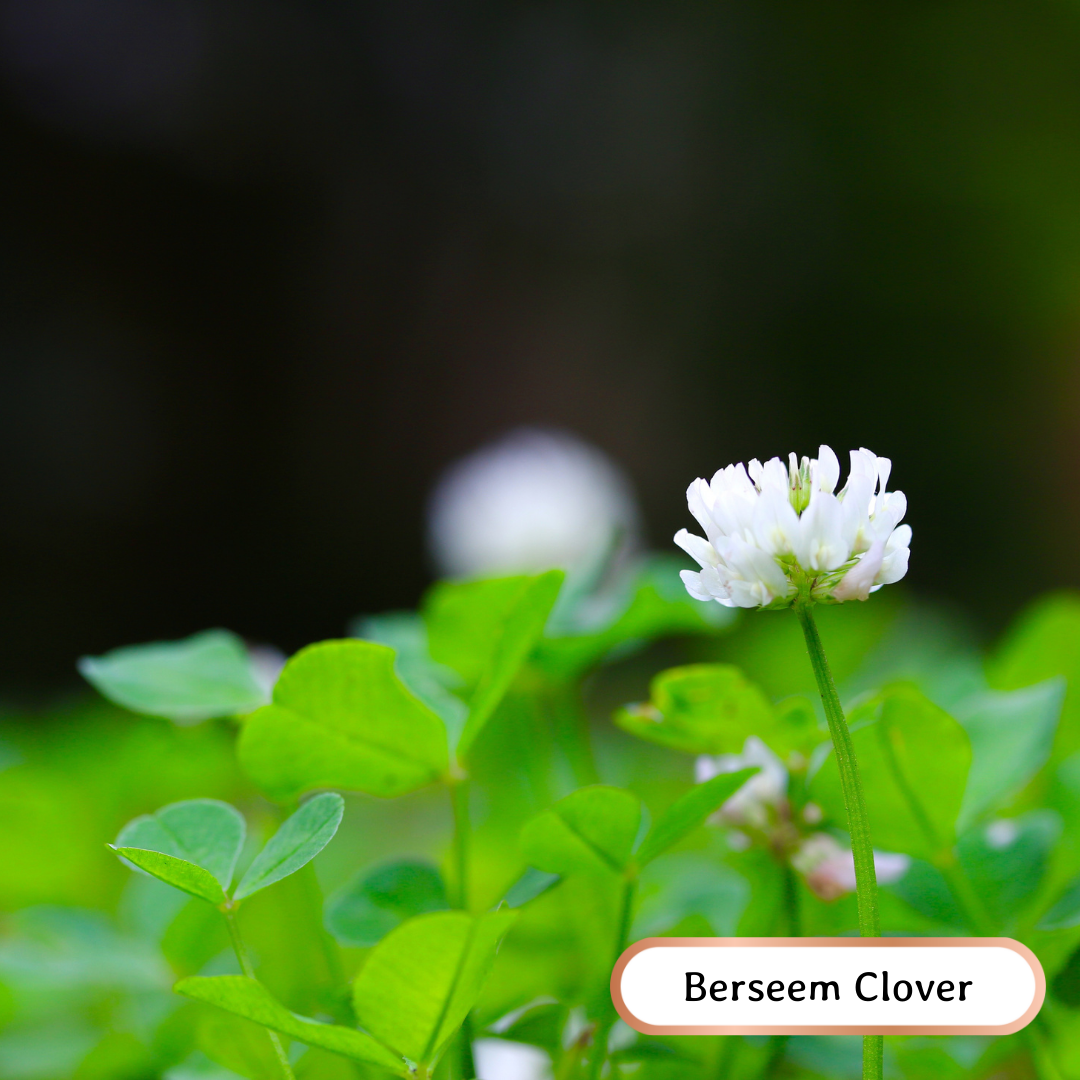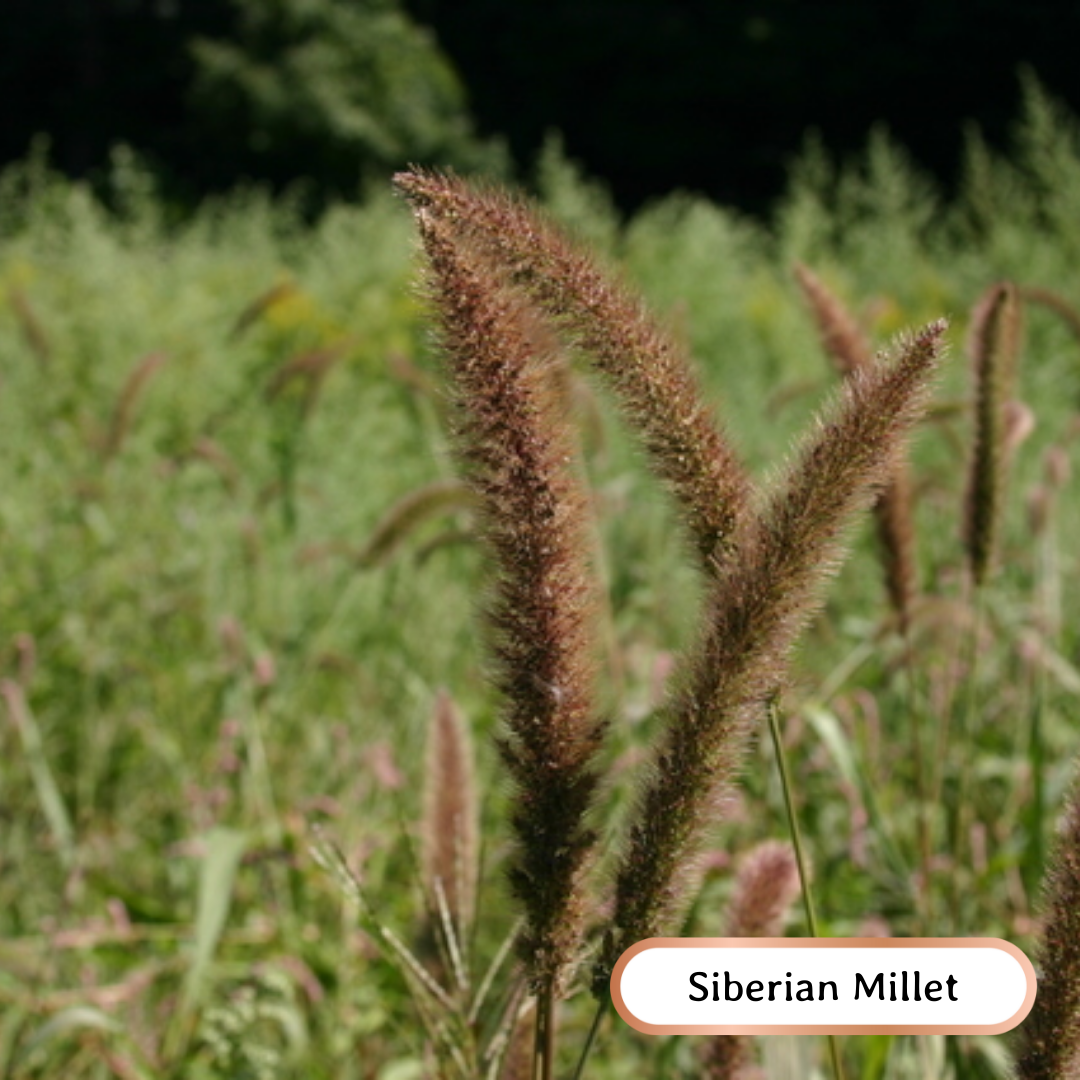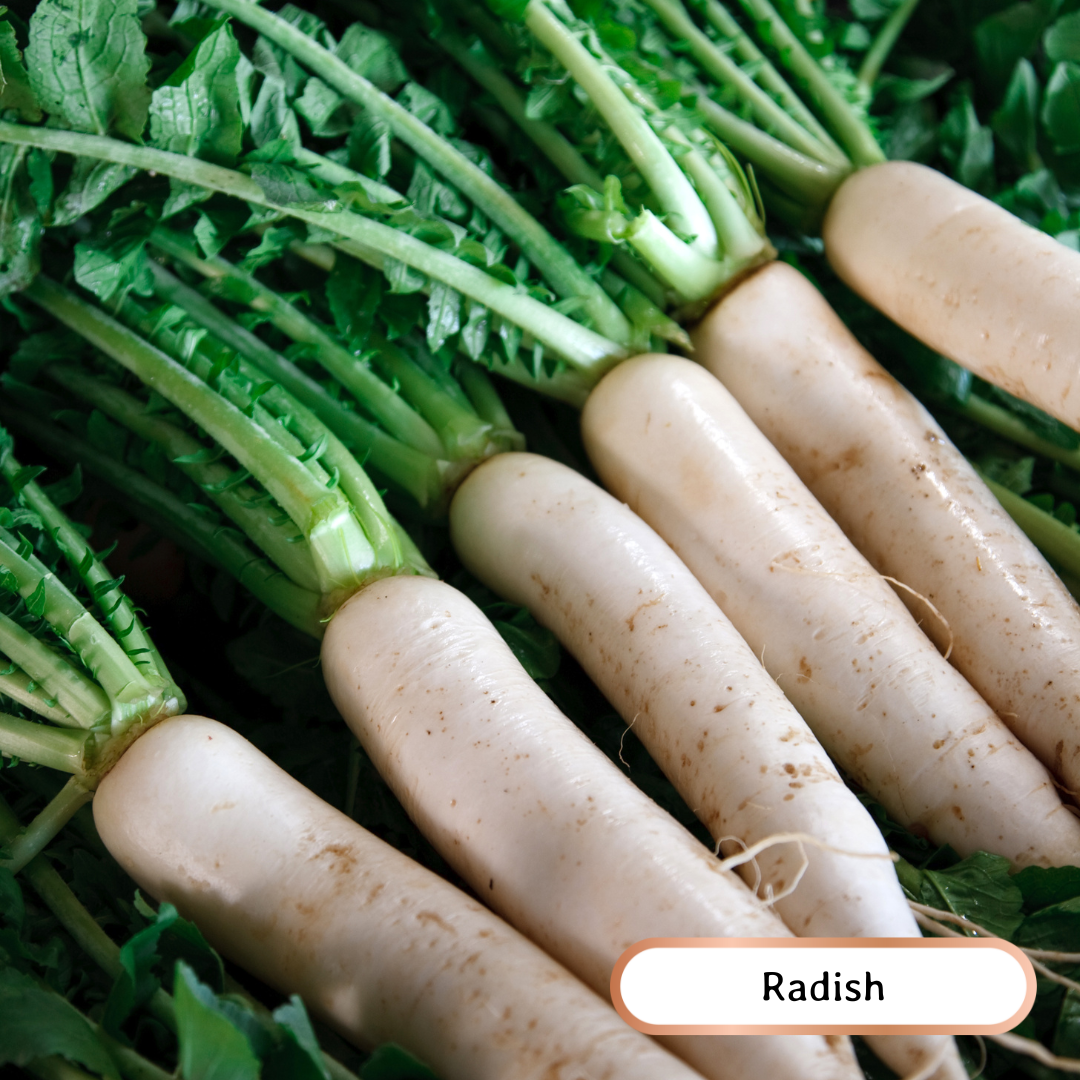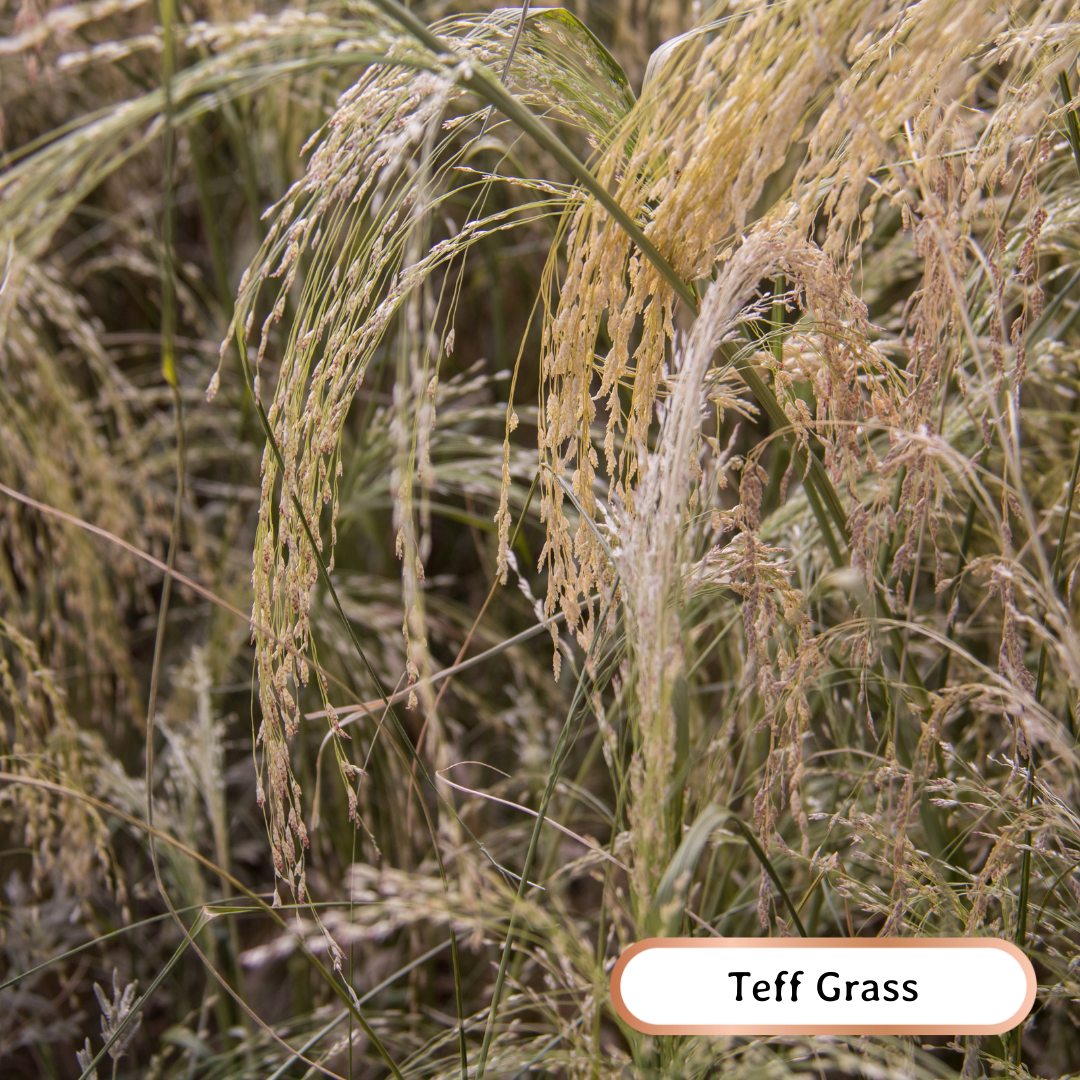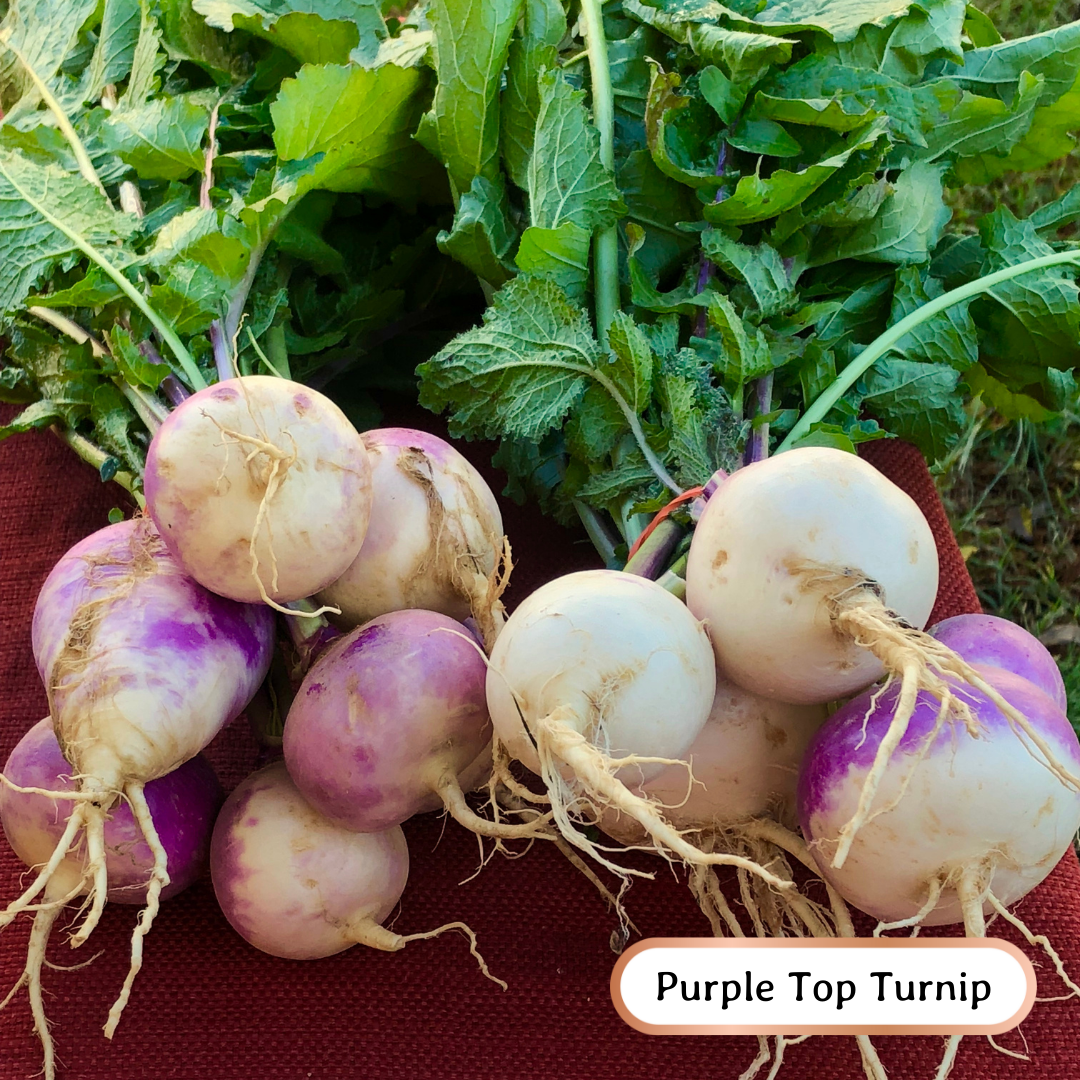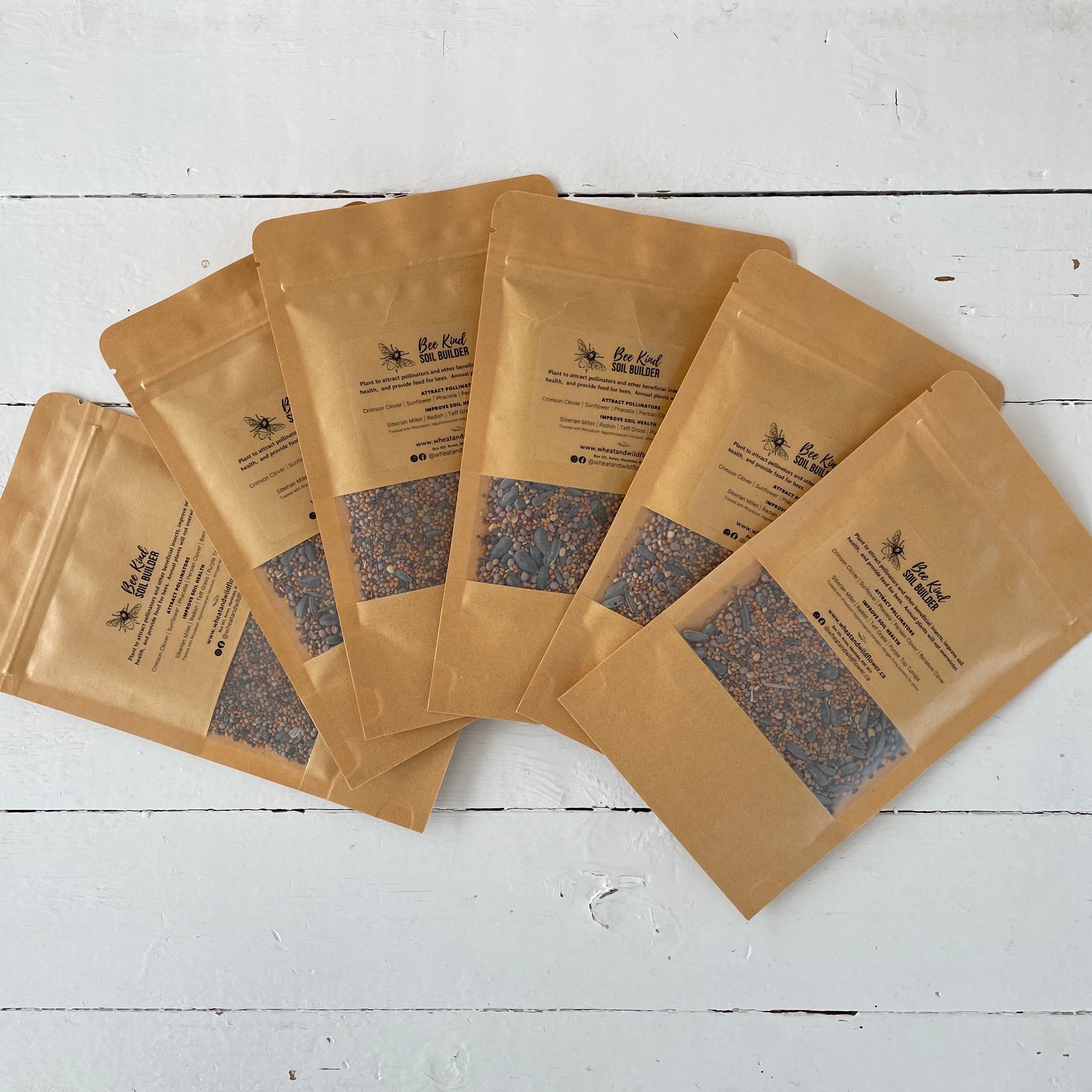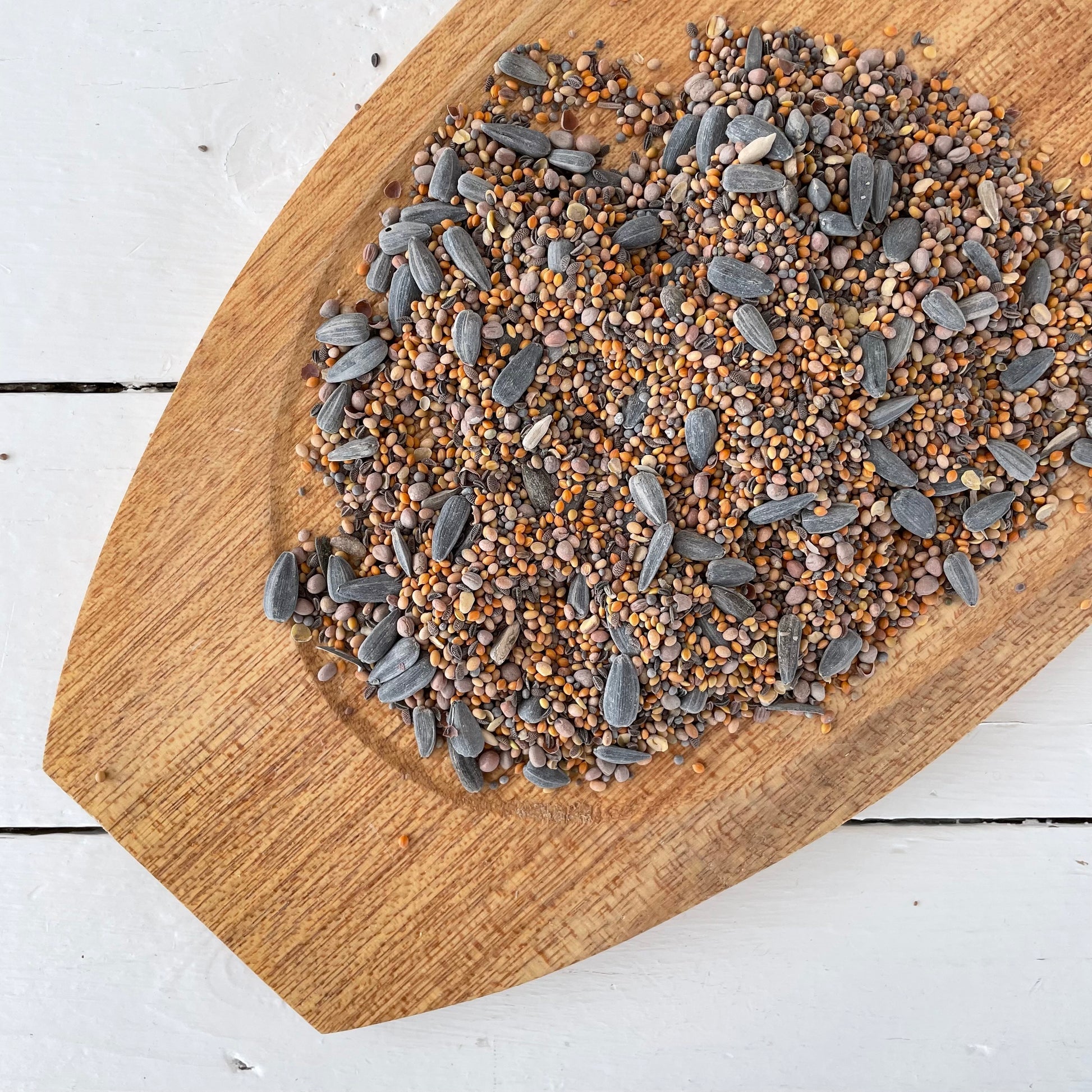Wheat & Wildflower Handmade
Bee Kind Soil Builder Seed Blend
Bee Kind Soil Builder Seed Blend
Couldn't load pickup availability
Bee Kind Soil Builder
Regenerative Pollinator Seed Blend
for Gardens and Homesteads
Features
- Plant to attract pollinators and other beneficial insects, improve soil health, and provide food for bees. Annual plants will not overwinter.
- Regenerative pollinator blend for gardens and homesteads builds soil fertility, structure and organic matter.
Blend Contents
Attract Pollinators:
Crimson Clover, Sunflower, Phacelia, Persian Clover, Berseem Clover
Improve Soil Health:
Siberian Millet, Radish, Teff Grass, Purple Top Turnips
Please note - Bee Kind Seed is for sale in Canada only. It can not be shipped to the USA.
Uses
- Do you have a poor area in your yard or garden that you'd like to use in the future? Plant Bee Kind Soil Builder in an area where you wish to create ground cover while improving soil health and structure. These plants will prevent soil erosion, increase water filtration and decrease water run-off. At the same time, the beautiful flowers will attract birds, bees and other pollinators.
- Wish to attract bees to your garden to improve yields? Plant Bee Kind Soil Builder as a row within or as a border around your garden to attract bees and other pollinators to flowering garden crops like peas, beans, cucumbers, tomatoes, squash, pumpkins and melons.
- Would you like your yard and garden to be attractive to bees, hummingbirds, butterflies and moths? Create a garden bed and plant Bee Kind Soil Builder to grow food for native pollinators and birds.
- Are you planting lawn grass and you're worried about dry cracked soil? Plant your grass seed and then gently rake the Bee Kind Soil Builder seed mix into the soil. The plants will grow into a "cover" to protect the grass seedlings and provide a healthy habitat for the seedlings to grow. The mix will die in the fall and your grass will remain to enjoy. Any bare spots can be filled with additional grass seed in the fall or spring.
Planting Instructions
- Direct seed into the garden.
- Plant in the spring after the danger of frost has passed.
- Create a row and plant 1/2 inch deep. Or rake an area and sprinkle with seed and then rake gently to cover with soil.
- 50 grams of seed will cover approximately 5 square meters (50 square feet) of soil.
Care Instructions
- After seeding and while the seedlings are sprouting, water the area gently.
- Once the plants are growing, they will respond best to occasional deep waterings or rain.
- Plants can be grown in full or partial sun.
- Annual plants will not over-winter.
Size
- 50 grams or 130 grams
Why plant a seed blend? Can't I just plant flowers?
- While it is important to save the bees and feed ourselves (and also wildlife, other insects, and animals), it is also important to improve our soil so we can grow more nutritious food.
- What we see growing above the ground is just a small part of the natural world. Below ground there is an entire system of tiny microorganisms that are essential in creating healthy soils which are needed to create food for humans and for insects, wildlife and other animals.
- All functioning plant systems rely on a mix of plant species to create a healthy habitat. A healthy natural plant system will always contain a mix of grasses, legumes and forbs.
- The Bee Kind Soil Builder seed blend contains legumes (clovers), grasses (millet and teff) and forbs (sunflower, phacelia, radish and turnip).
- These species of plants have a variety of root systems. Some roots are long, tap roots that reach for nutrients lower in the soil. Other roots are more fibrous and branching. A variety of root system helps improve the soil structure and health by improving water filtration and increasing organic matter and nutrient cycling. Roots provide habitat for soil micro organisms.
- And why turnips and radishes? Turnips and radishes are part of this blend because of their roots. Both varieties are edible, but likely not too tasty, as they are forage varieties. They are best left to grow and decay. The long deep tap root of the radish helps break up soil compaction and, once decayed, provides pathways for water and nutrients in the soil. The larger turnip tuber provides organic matter to the soil.
Rhizobium leguminosarum inoculum
- Bee Kind Soil Builder seed has been treated with Rhizobium leguminosarum inoculum, nitrogen fixing bacteria for clover.
- Nitrogen is an essential nutrient for plant growth. While nitrogen is readily available in the atmosphere, it is not in a form that plants can use. Ammonia is a form of nitrogen that all growing plants are able to use.
- Inoculants allow legume plants, like clover, to form nitrogen-producing nodules on their roots. Nodules allow the plants to "fix nitrogen" or convert atmospheric nitrogen to ammonia.
Share
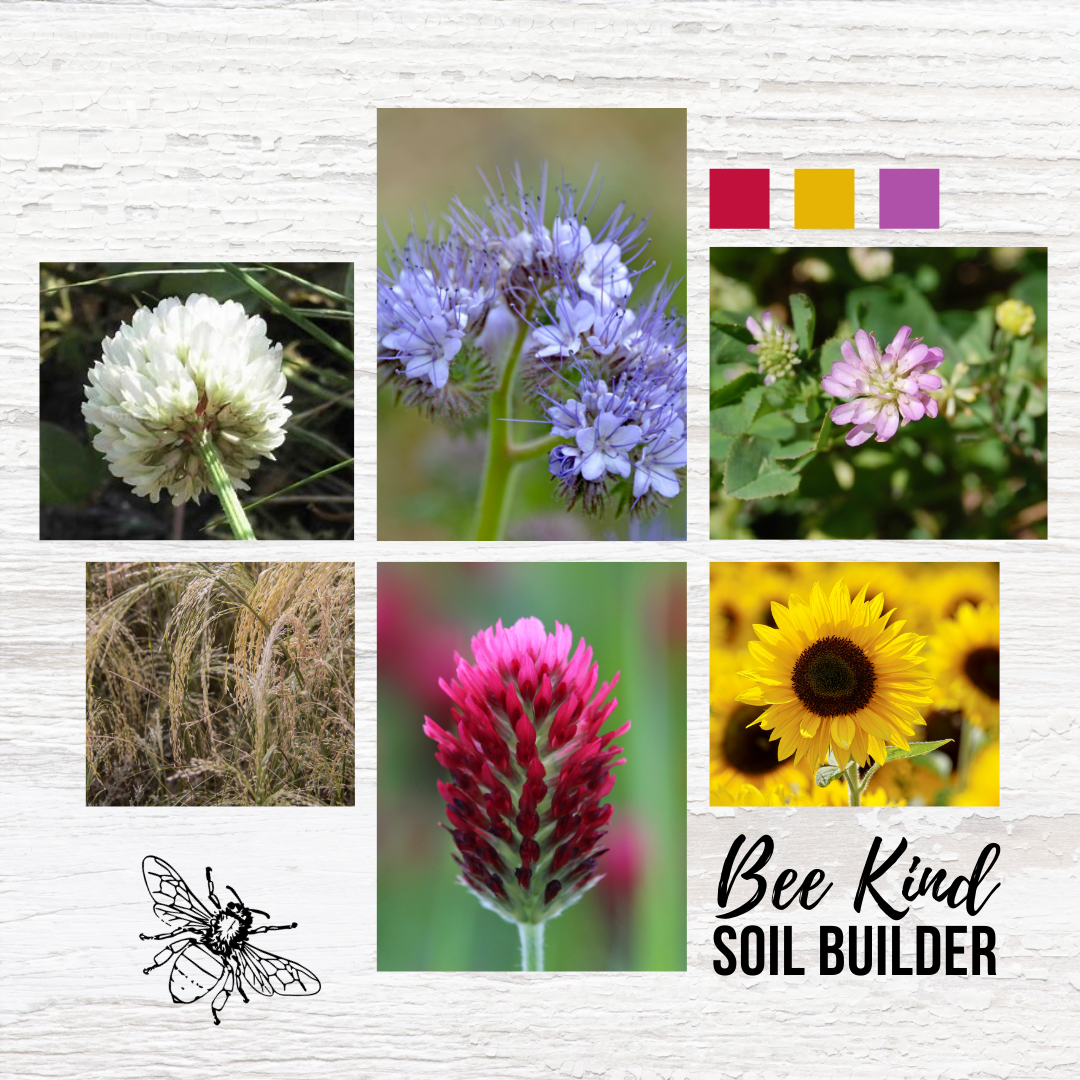
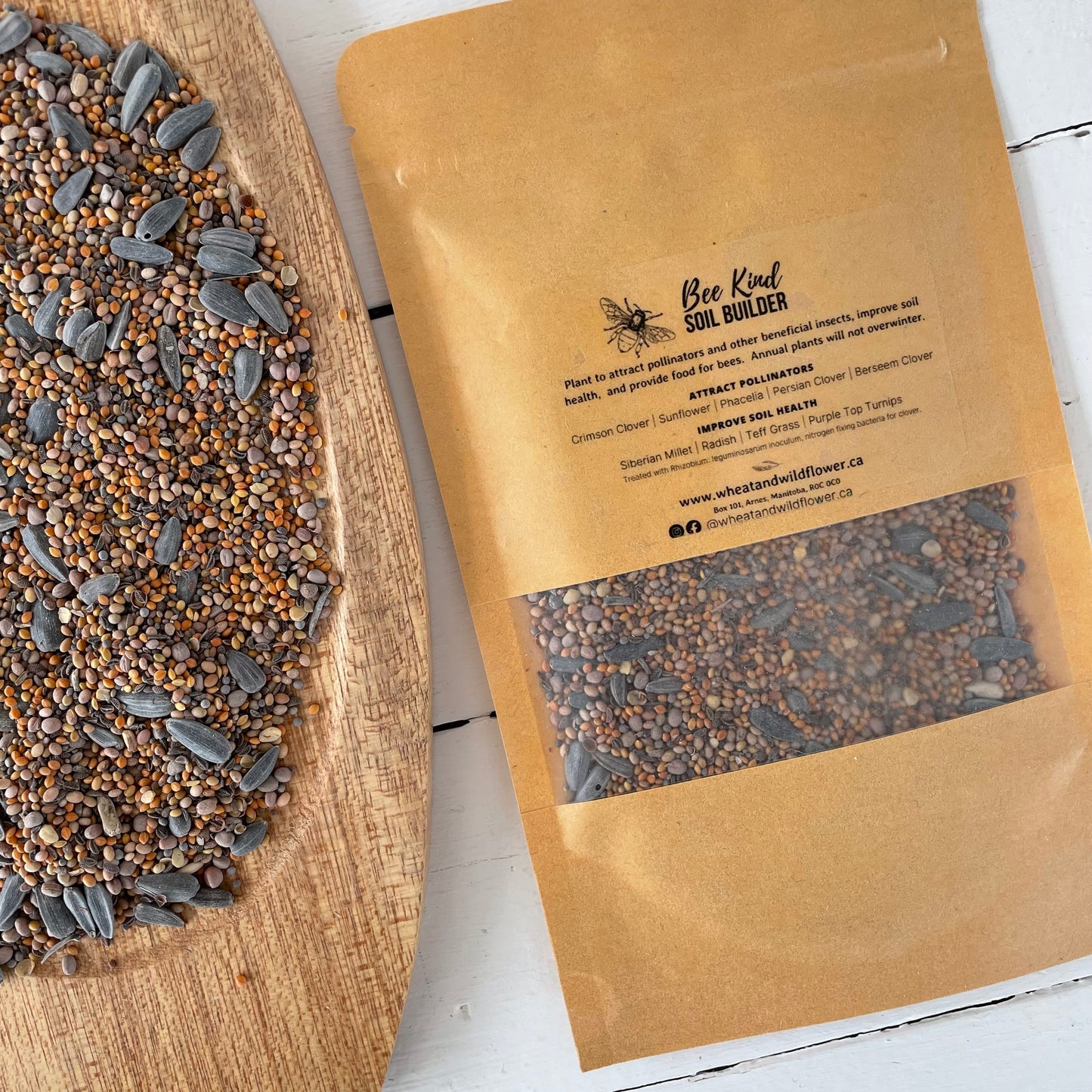
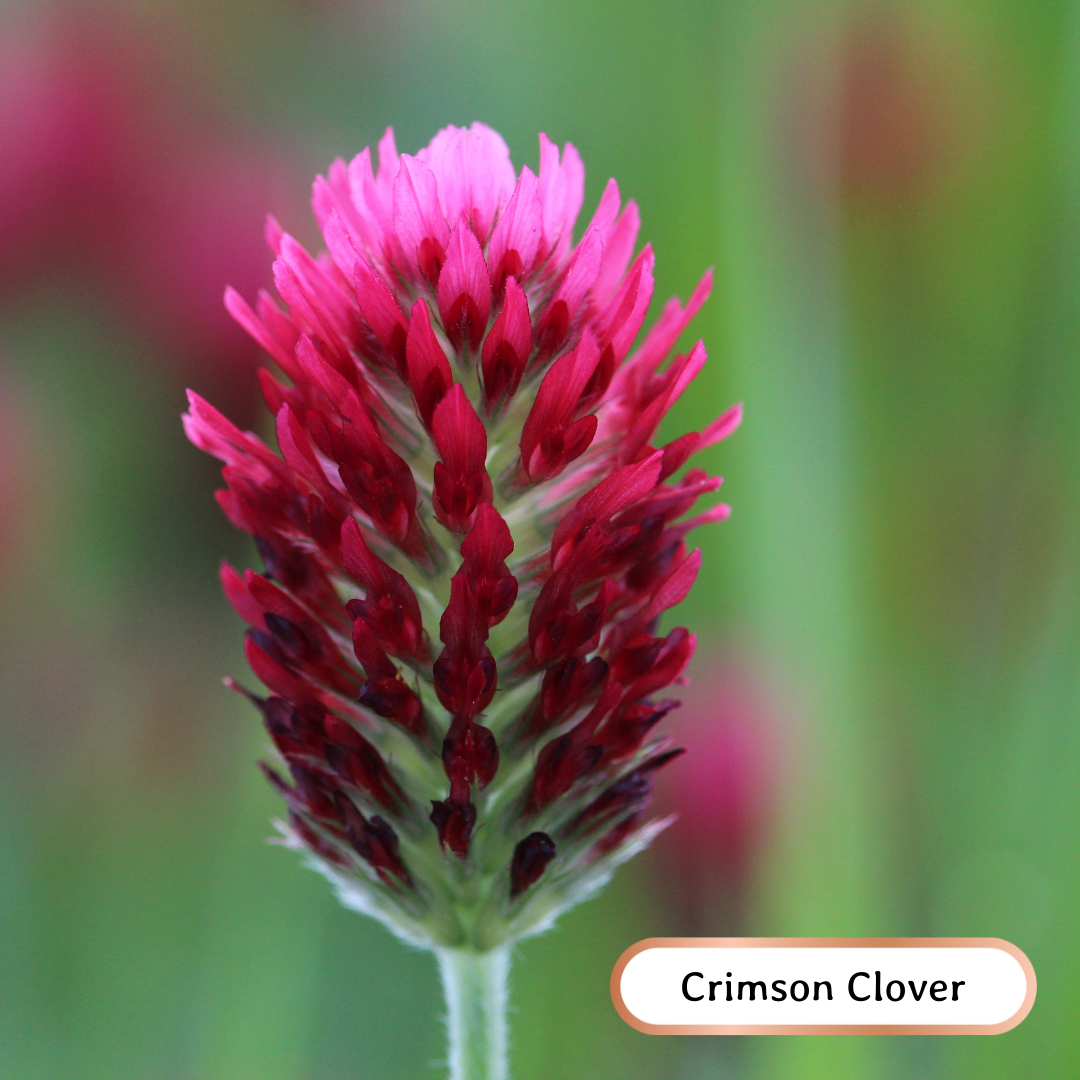
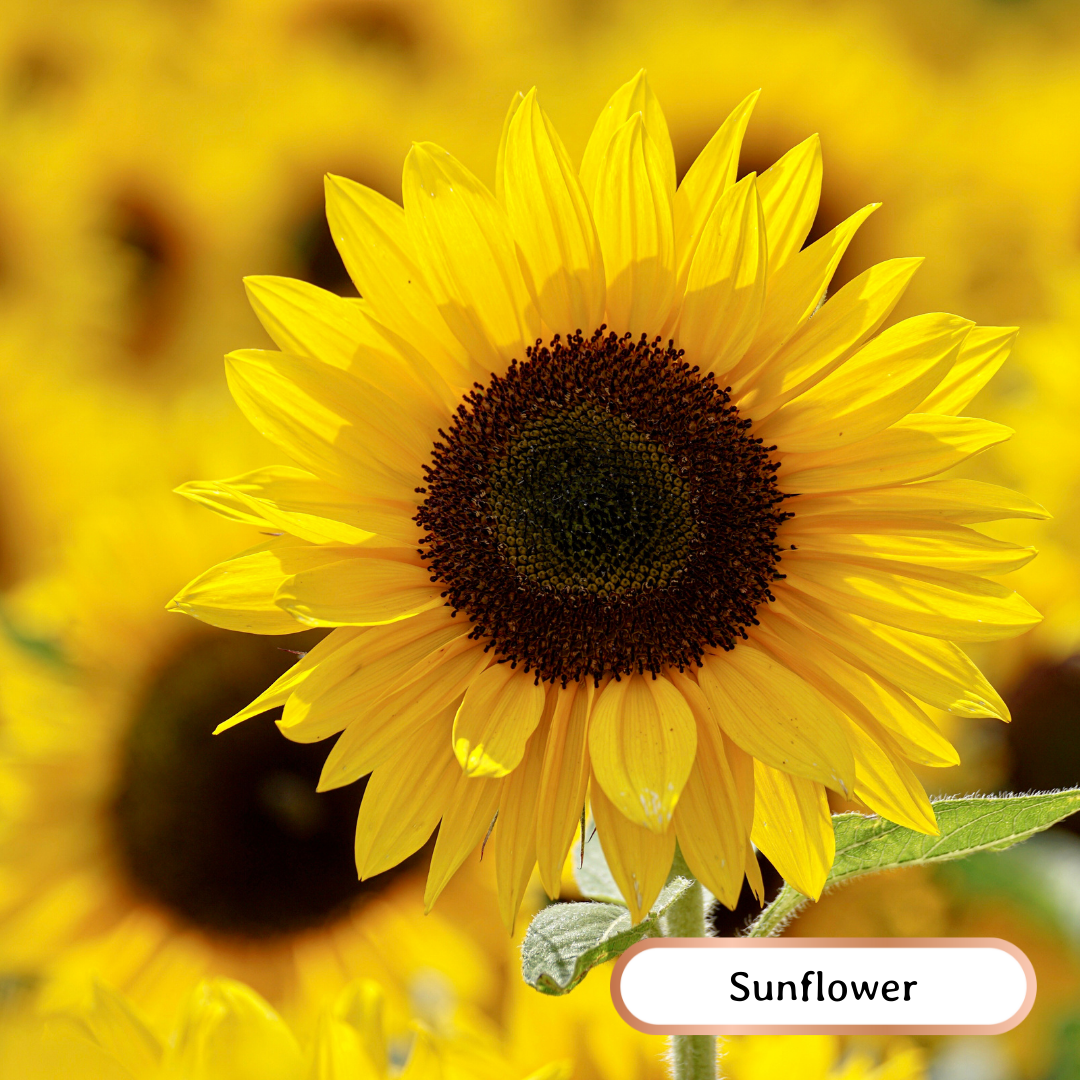
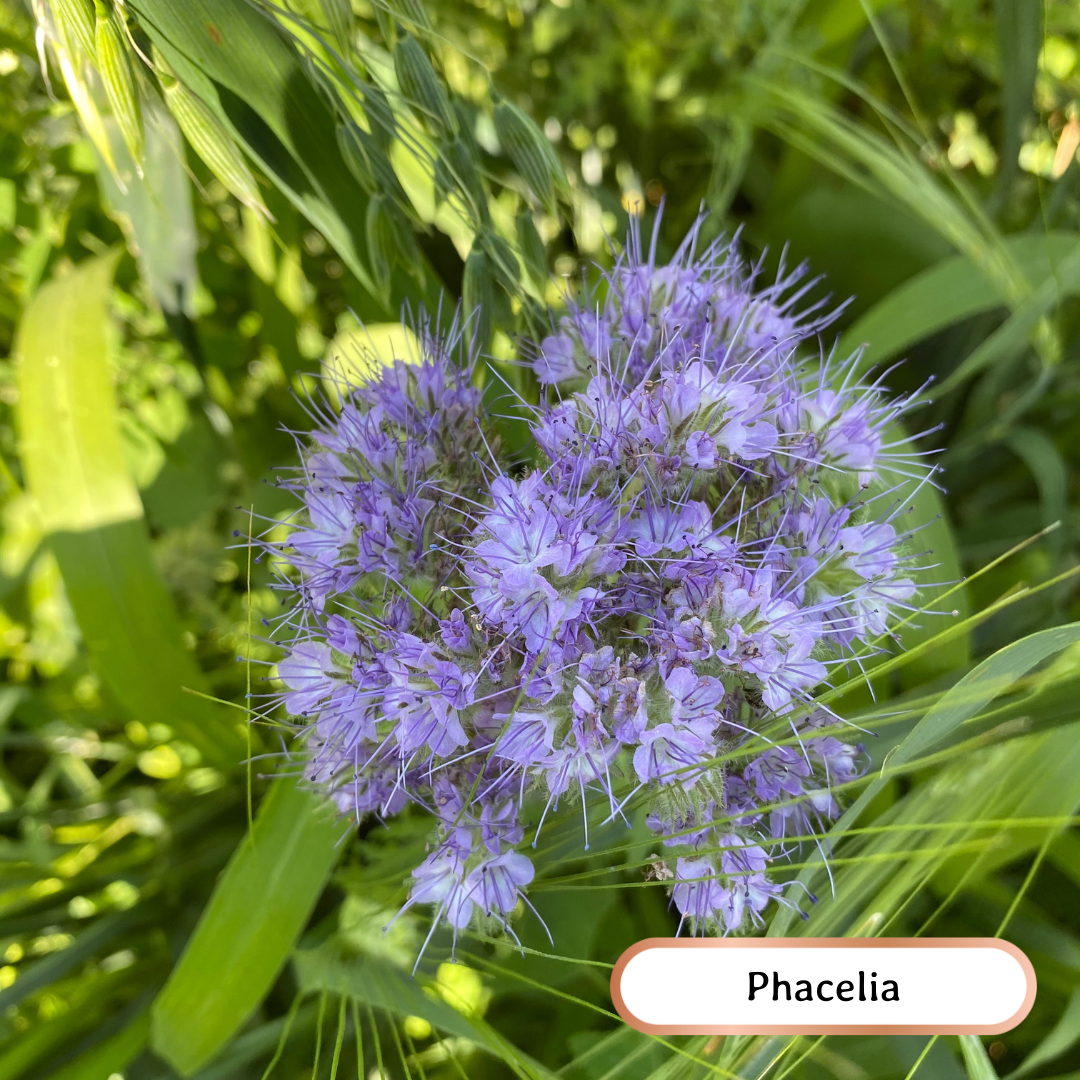
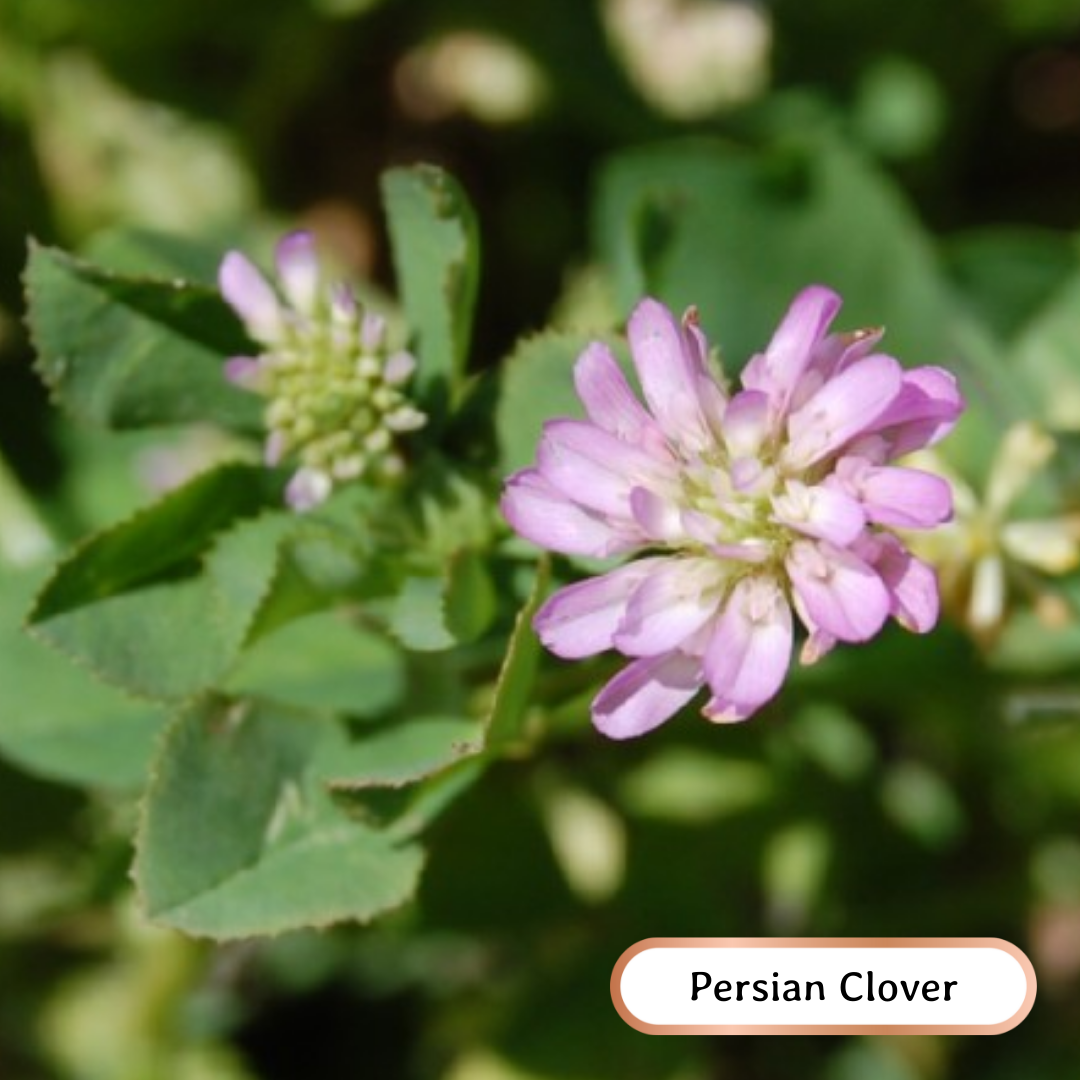
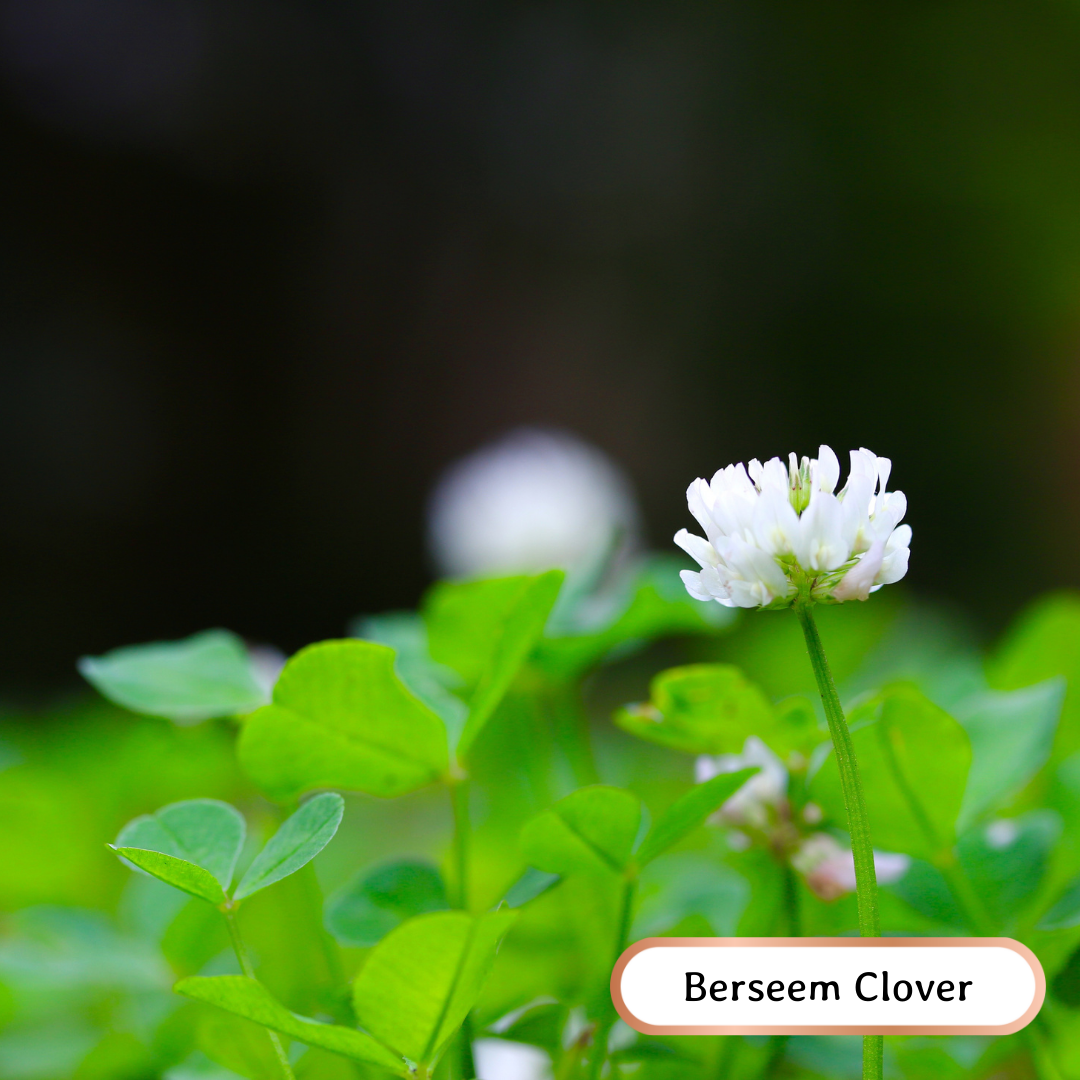
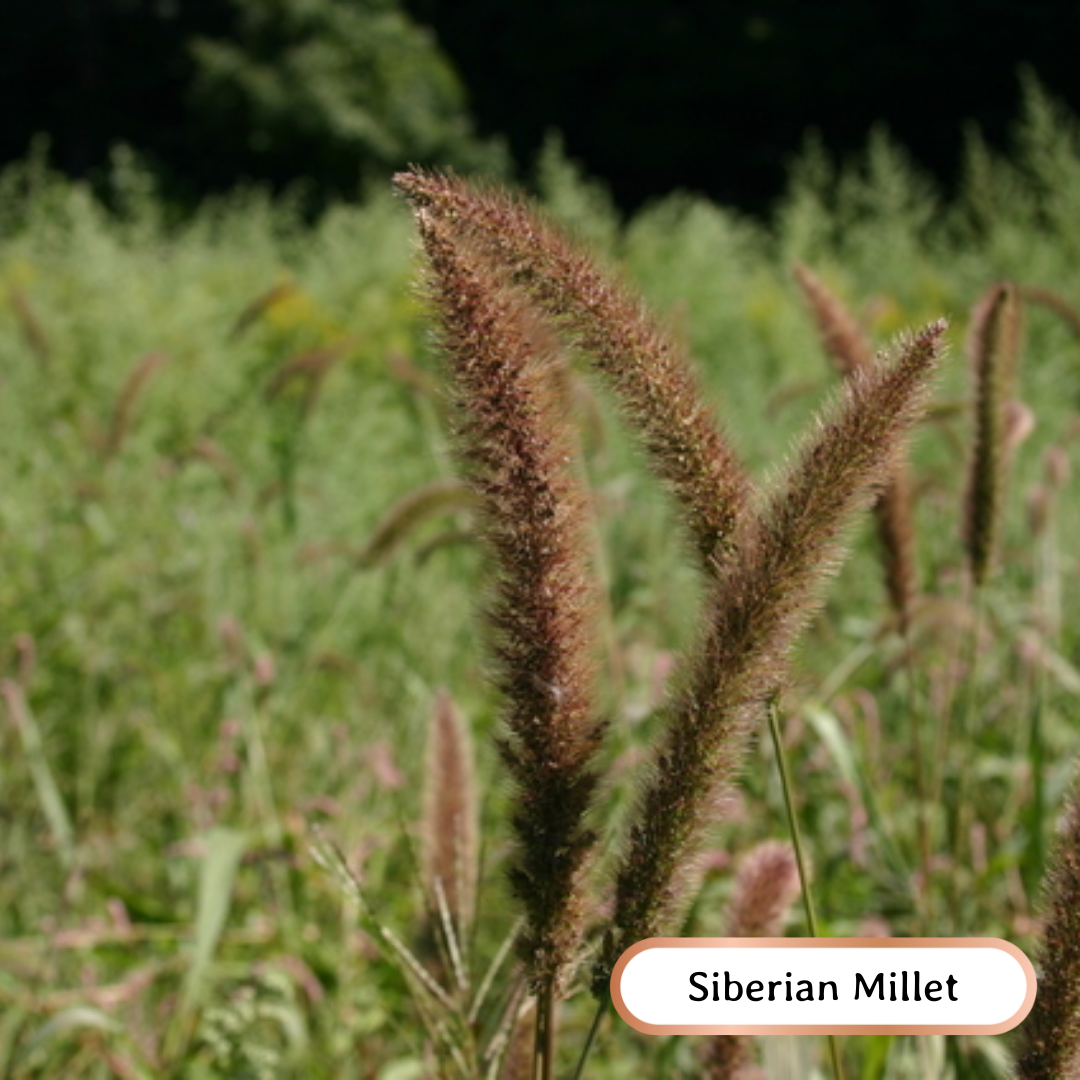
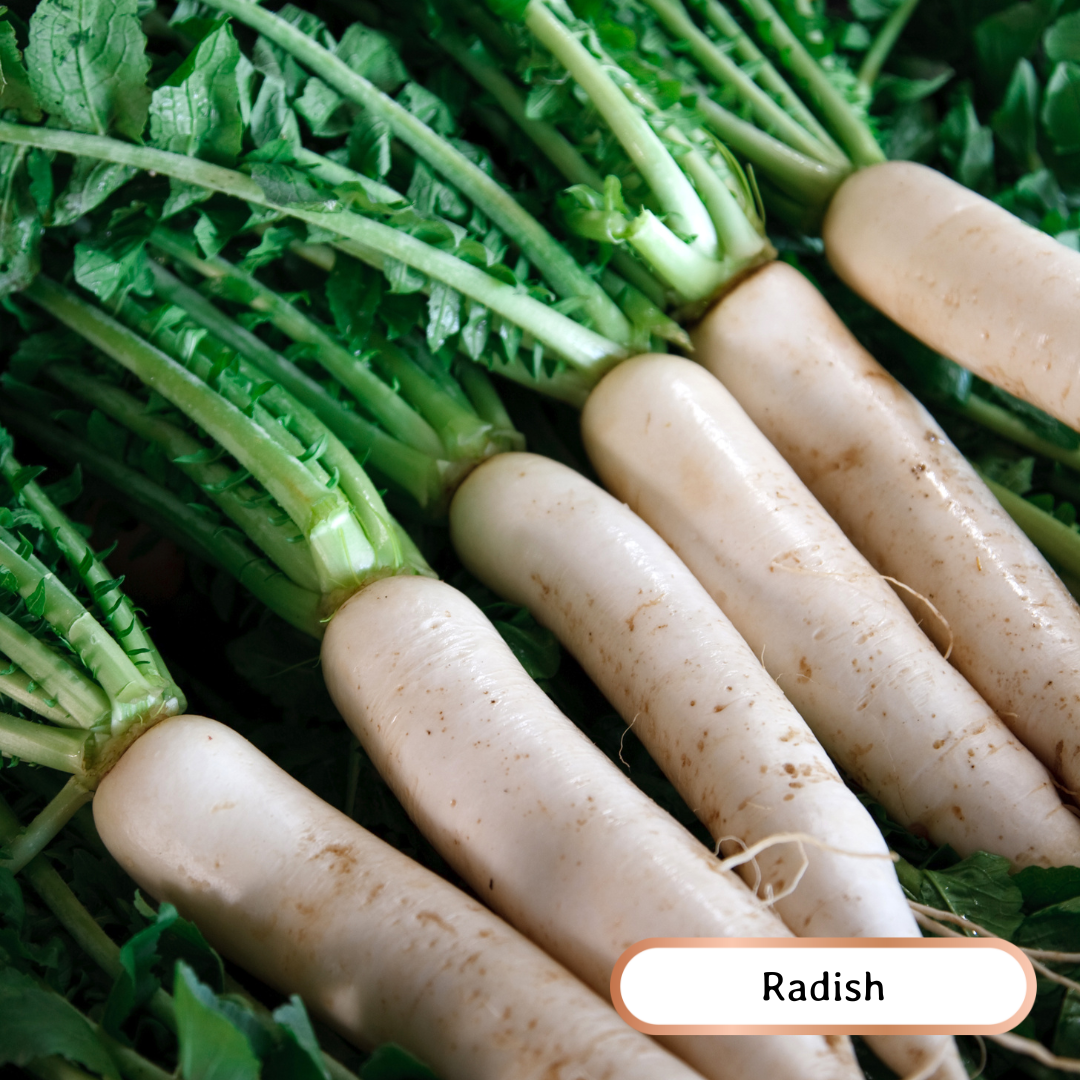
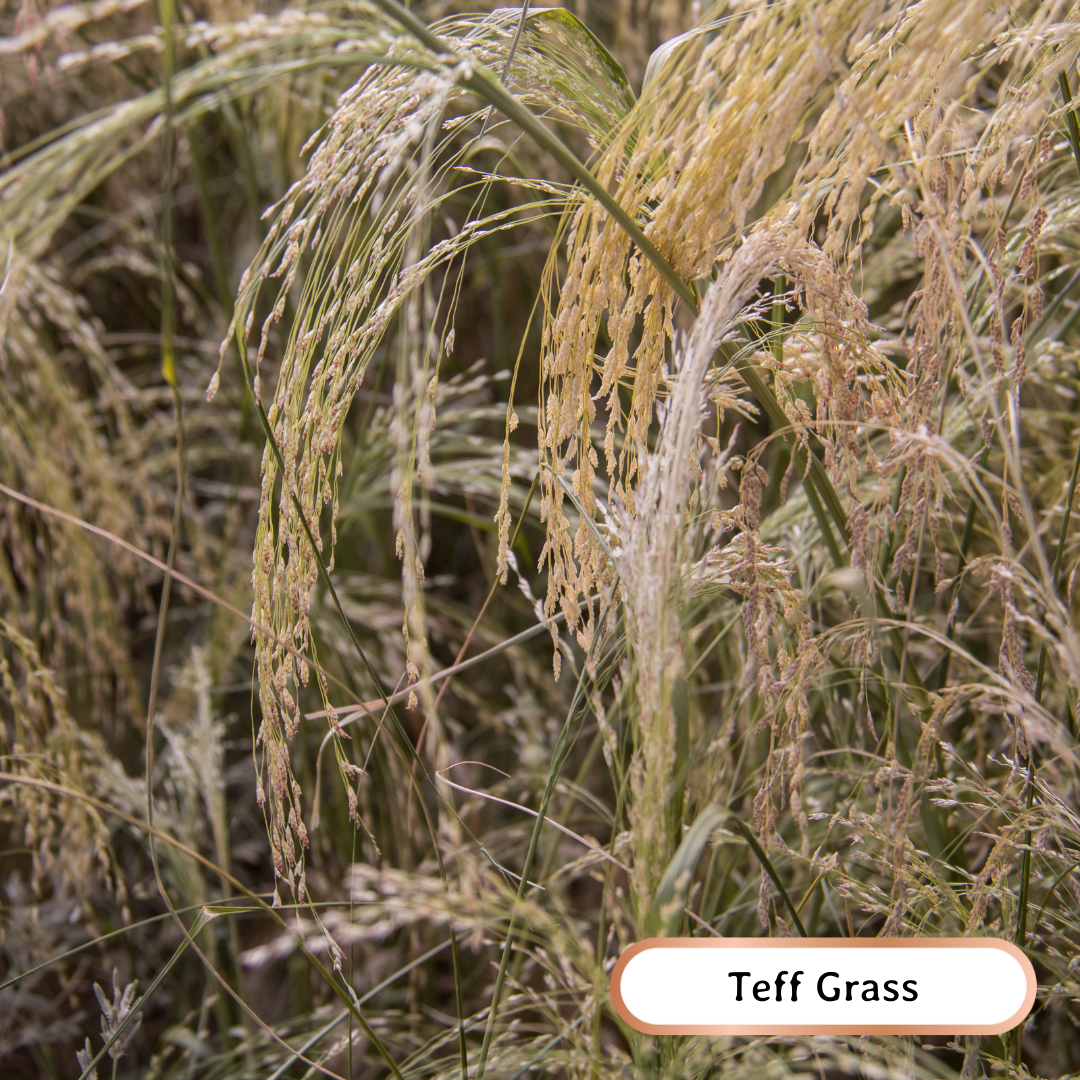
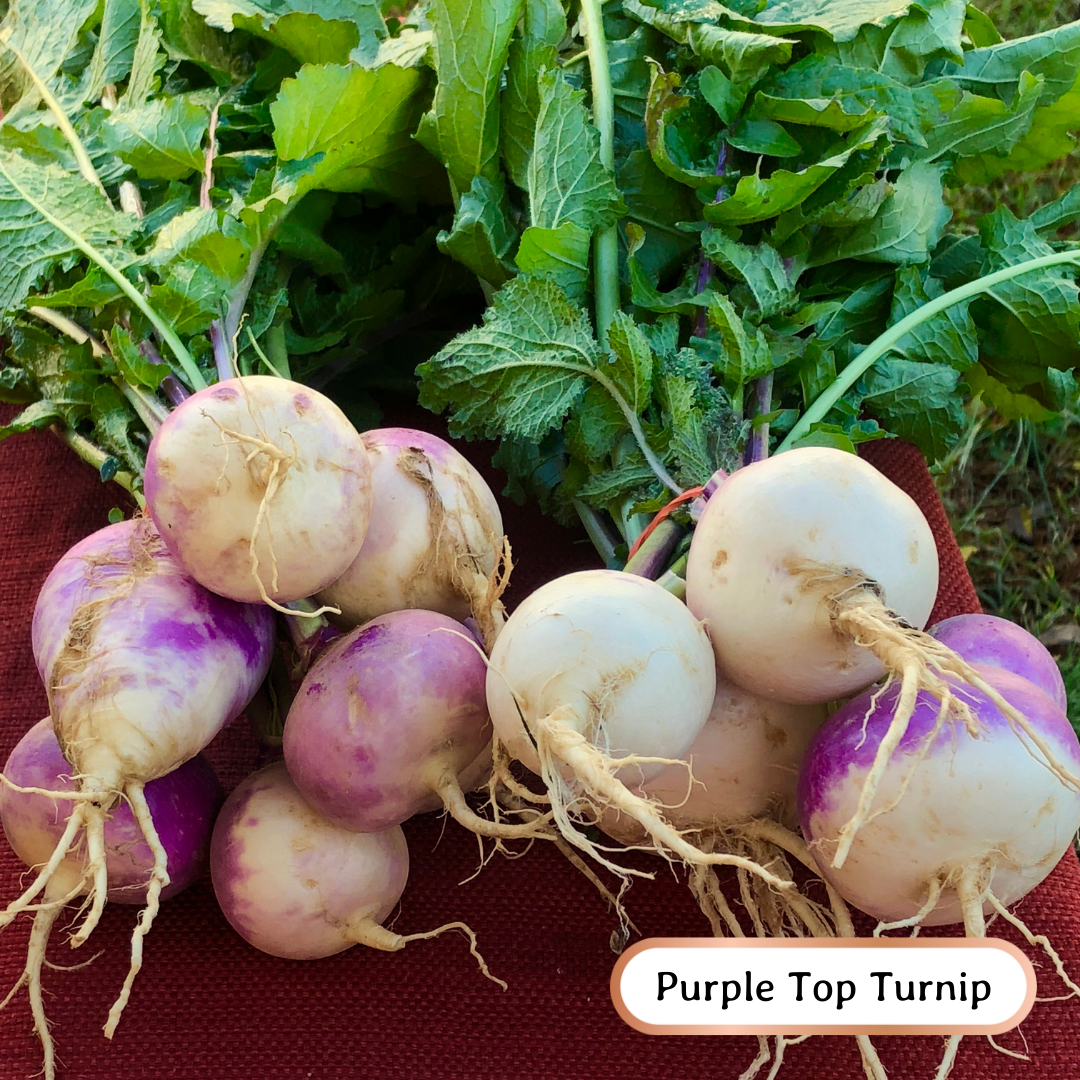
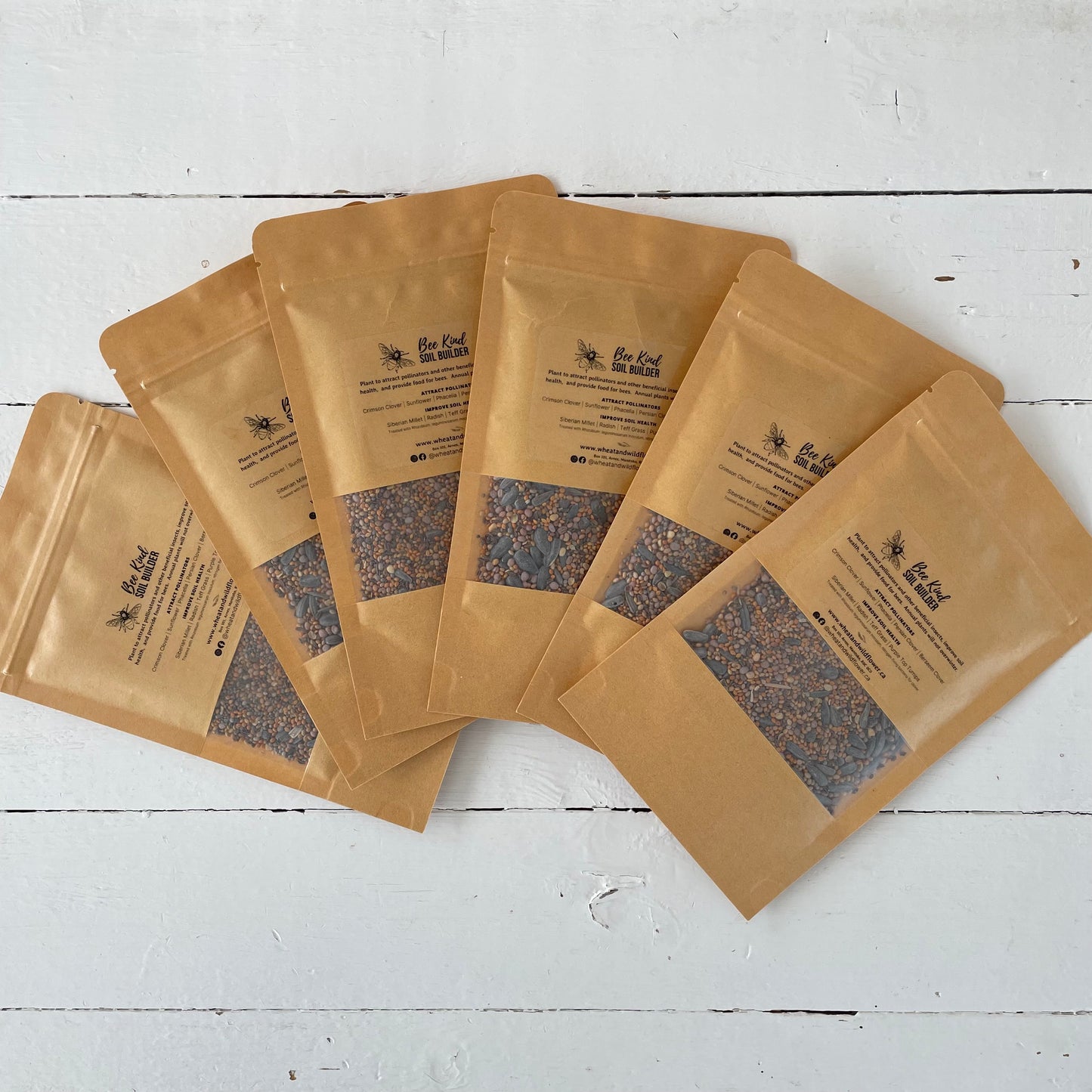
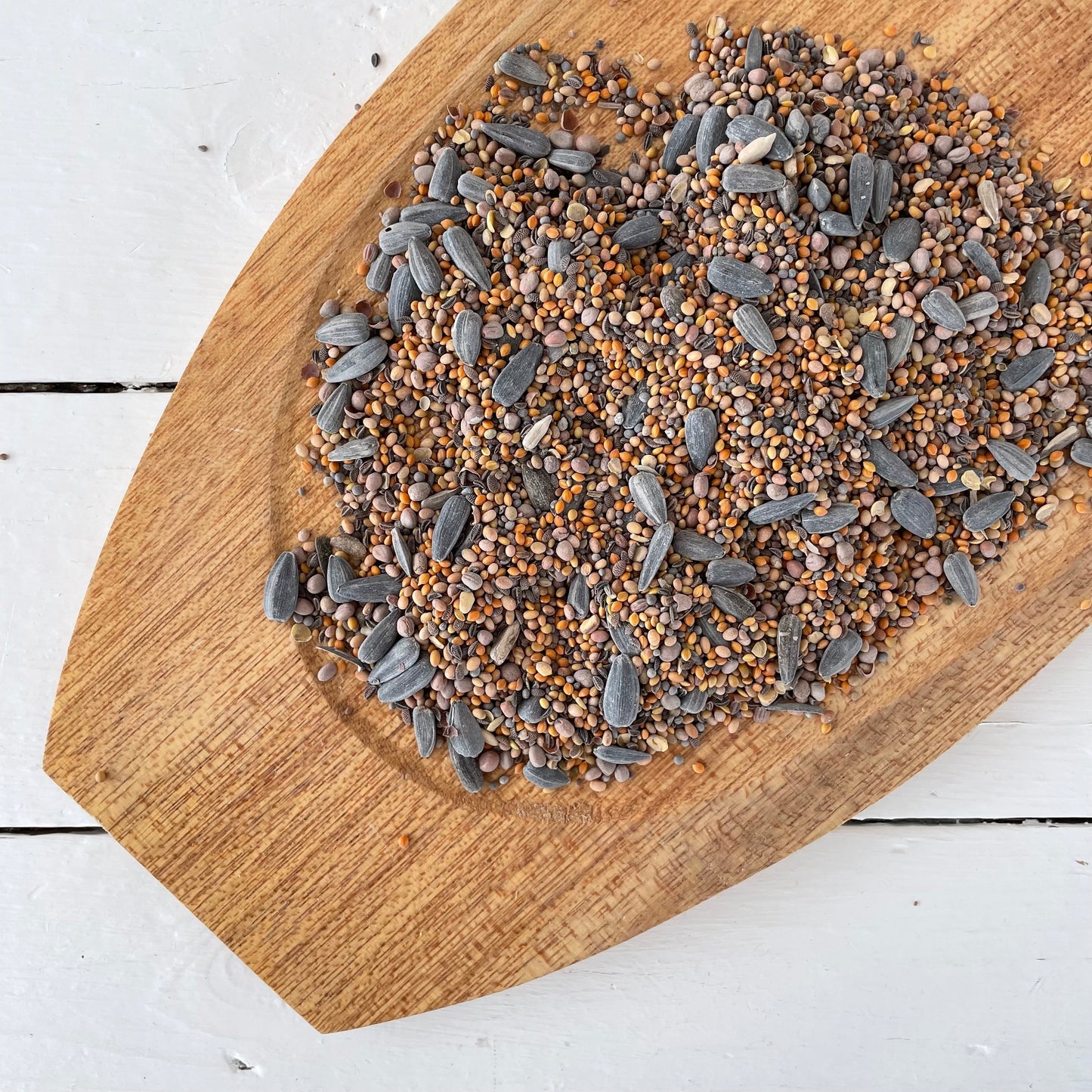
We planted a fairly large area of top soil that we had purchased (but was completely depleted of nutrients) and did minimal maintenance or watering. The area was completely green by the end of the summer and looked great. I can’t wait to plant it this year with crops to eat!

